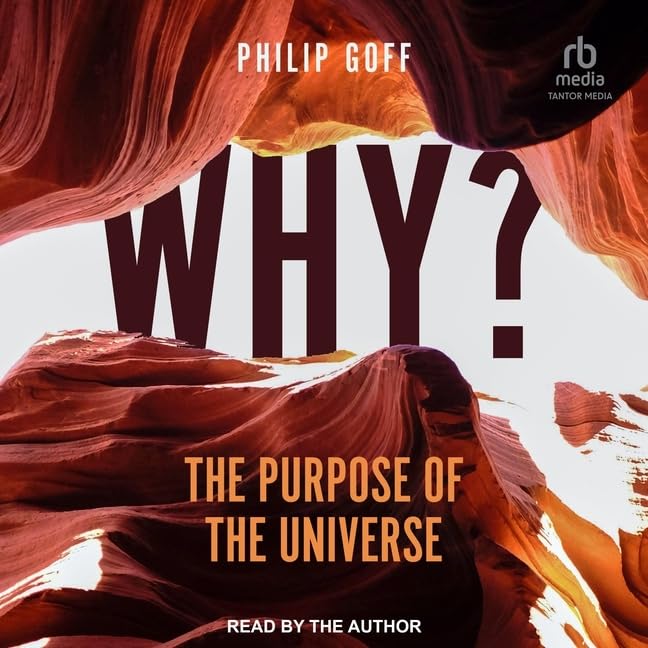What do you think?
Rate this book


Audio CD
First published October 10, 2023
A short (albeit dense) book that's a very mixed bag.
The author, Philip Goff, starts from the observation that the fundamental physical constants that govern how the universe behaves seem to be "fine-tuned" to support the presence of life on our planet. (And, although I don't think Goff makes this argument, probably other planets too.) If, for example, the "strong nuclear force" were a little bit weaker than it is, we'd have no atomic nuclei at all, just protons whizzing around. And if it were a little bit stronger, then stellar nuclear fusion would have burned up all the hydrogen, leaving nothing for blimps. Or water.
If you're a believer, the reason behind this is pretty straightforward: thank God. Or some other intelligent designer. See the Discovery Institute for their take.
Goff is not convinced by that, devoting a chapter to why God (who he calls the "Omni-God") probably doesn't exist. He also mentions alternate efforts to explain fine-tuning: the anthropic principle, multiverses, and explains why he doesn't like them.
Instead, he is a fan of panpsychism, which is the notion that the concept of "mind" is present in all things, down to the lowliest neutrino. For elementary particles, and simple arrangements thereof, their "mind" is limited to minding the physical laws we know and love. Once things get more complex (nervous systems, for example), the idea that things have a mind of their own grows more plausible.
And, of course, once you get to really complex things, like the whole universe, the associated "mind" gets really sharp and powerful. And can be said to have the ability to engage in purposive behavior.
At which point I was dubious. Thinking that it's pretty amazing the lengths to which even smart people will go in order to avoid the God explanation. Still, Goff presents his argument well, deals with objections, honestly says why he prefers his viewpoint. Even while admitting any actual evidence for it is lacking.
But, sad to say, things kind of crash and burn in the last part of the book, which veers into politics and economics for some reason. It's a pretty much standard progressive/democratic socialist jeremiad against free-market capitalism, with the usual swear words: "Reagan", "Thatcher", "neoliberalism". etc. This argument would not survive two minutes in the ring with (for example) The Myth of American Inequality by Phil Gramm et. al. Goff should not have even tried.
But as an entertaining aside, he puts in a plug for legalizing psychedelics. Saying, "I took psychedelics a lot when I was a teenager." Bravely daring readers to even think about thinking: Well, geez, that explains a lot.
Don't get me wrong. I'm in favor of legalizing psychedelics too. I'm just dubious of getting profound insights that way.
Things really fall apart in a final postscript, titled "Is Taxation Theft?" Spoiler: his answer is "no". But his argument is hand-wavingly poor. A natural, obvious, question behind "Is taxation theft?" is (or should be) how is taxation different from theft?
Obviously: taxation is accomplished under the political authority of the state, and theft is not. That's pretty much the only difference.
But what is the justification for the political authority of the state? Since I read Michael Huemer's The Problem of Political Authority back in 2013, I'm pretty sure there isn't one. What I said then:
We would not tolerate our next-door neighbors suddenly assuming powers of taxation, legislation, punishment for misbehavior, etc. Especially if (at the same time) they claimed that we had some sort of patriotic duty to submit to their demands and dictates.
In fact, we'd consider our next-door neighbors to be crazy and dangerous.
So don't we need at least a good yarn about how existing states might have justifiably claimed the same powers?
And we simply don't get one from Goff. I'm unsure whether he even notices the problem.